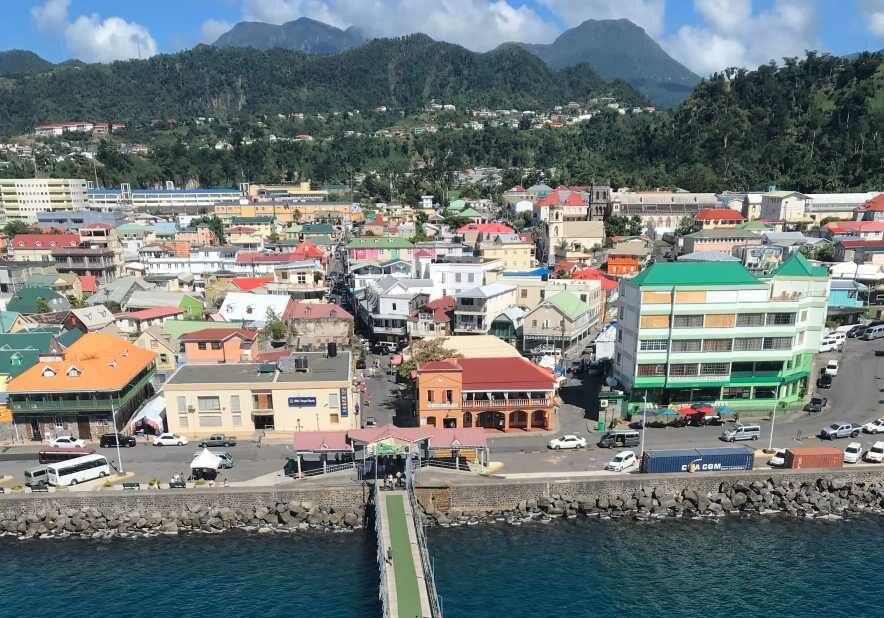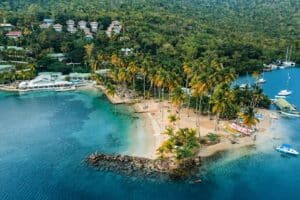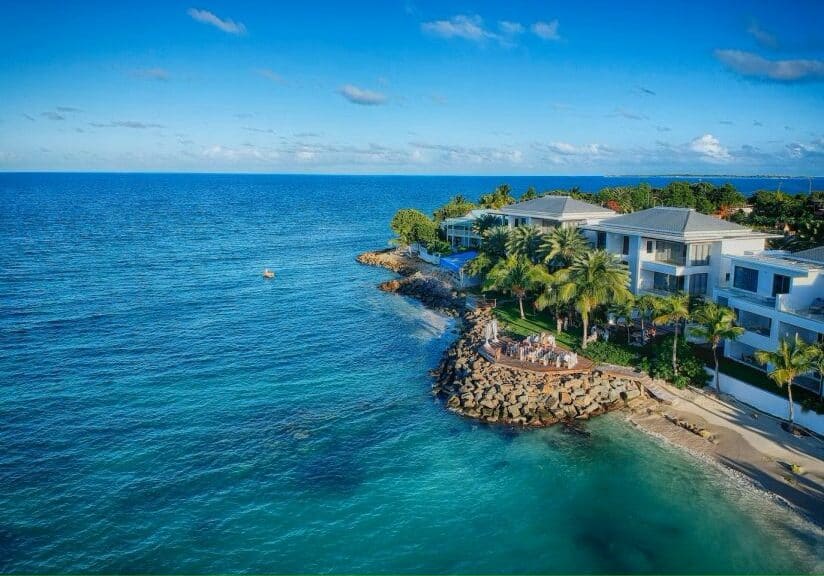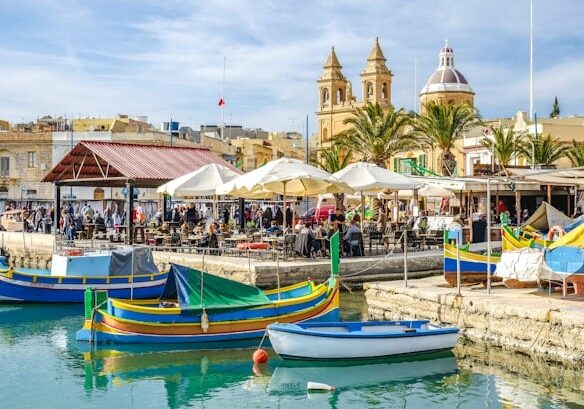
This unique approach provides an opportunity for individuals to obtain citizenship in a country by contributing significantly to its economy, such as through substantial donations.
Unlike traditional immigration methods, which can be time-consuming and require strict criteria to be met, citizenship by donation is a quicker route that benefits both the recipient and the host nation.
By investing in development funds, real estate, government bonds, or specific economic projects, investors can obtain not just a passport but also access to a variety of opportunities, including improved global travel, economic opportunities, and a backup plan in times of political or economic uncertainty in their home country.
This article aims to simplify the complexities of citizenship by donation for foreign investors, exploring its mechanics, benefits, and ethical considerations, and providing a comprehensive guide to understanding this modern approach to global citizenship.
What is Citizenship by Donation?
Citizenship by Donation is a significant part of economic citizenship or citizenship by investment programs. It’s an option for those who want to acquire citizenship in a country by making a financial investment.
This is done in various ways such as through donations to national development funds or investments in businesses, government bonds or real estate.
The main aim is to attract wealthy individuals who can bring substantial economic benefits to the country in return for the privilege of becoming a citizen.
These programs are usually more popular in smaller nations or island states, where the influx of funds can significantly impact the national economy.
For example, countries in the Caribbean, such as St. Kitts and Nevis, Dominica, and Antigua and Barbuda, offer citizenship by donation programs that contribute to national development projects, such as infrastructure, education, and hurricane relief efforts.
Benefits of Citizenship by Donation
Economic Growth | Citizenship by Donation Programs often require substantial investments into the country's economy, either directly through donations to a national development fund or indirectly through investments in real estate or business ventures. This influx of capital can lead to economic growth, infrastructure development, and job creation. |
Increased Revenue for the Government | The funds generated from these programs can provide governments with additional revenue that can be used for public services, such as education, healthcare, and infrastructure projects, benefiting the citizens of the country. |
Global Mobility | For investors, one of the most attractive benefits is enhanced global mobility. Many citizenship-by-donation programs offer passports that allow visa-free or visa-on-arrival access to numerous countries worldwide, making international travel easier and more convenient. |
Tax Benefits | Depending on the jurisdiction, obtaining citizenship through donation can offer tax advantages, such as no taxation on worldwide income, wealth, inheritance, or gift tax, which is appealing for high-net-worth individuals. |
Security and Stability | Having a second citizenship can provide a sense of security and stability, offering a safe haven in times of political or economic instability in one's home country. It acts as insurance for the investor and their family to have access to a peaceful and stable environment. |
Citizenship by Donation Countries
1. Dominica

Established in 1993, the program offers qualified foreign investors and their families the opportunity to obtain full legal citizenship and passports upon making a significant investment in the nation’s economy.
There are two main paths to obtaining citizenship through this program. Applicants can make a non-refundable donation to Dominica’s Economic Diversification Fund, which is used to finance national development initiatives.
The minimum donation amount is typically set at a specific threshold for a single applicant and increases for applicants who wish to include family members in their application. Another way to become a citizen is by investing in pre-approved real estate projects such as hotels, resorts, or other tourism-related ventures.
However, this option requires a higher minimum investment amount than the donation option, and the applicant has to maintain the investment for a certain number of years. In addition, there are also government fees, due diligence fees, and other costs associated with the real estate investment option.
2. St. Kitts and Nevis

In exchange for their contribution, investors get the opportunity to apply for citizenship of the country.
This program is quite popular for several reasons, such as the absence of any requirement to reside in St. Kitts and Nevis and the possibility of including family members in the application.
The program offers two primary investment options for applicants. A Contribution to the Sustainable Growth Fund (SGF) is a direct donation to the country’s economy, supporting sectors such as education, health, alternative energy, and infrastructure.
The minimum contribution for a single applicant is typically set at a certain threshold, with additional fees for family members included in the application.
Applicants can also choose to invest in government-approved real estate projects, such as hotel shares, villas, or condominium units. The investment must be maintained for a specified period, usually around five years, before it can be sold.
This option requires a higher investment amount compared to the SGF donation, along with government fees and due diligence costs.
3. Antigua and Barbuda

This program allows individuals and their families to acquire citizenship in Antigua and Barbuda by contributing to the country’s national economic fund.
The program is designed to entice foreign investments and boost economic growth while providing investors and their families with the advantages of Antiguan and Barbudan citizenship, including visa-free travel to more than 150 countries.
There are several investment route options available under this program, but focusing on the donation aspect, the main option is a donation to the Barbuda National Development Fund (NDF). This is a non-refundable contribution to the country’s National Development Fund, which finances various projects, including but not limited to public sector projects, innovation, and supporting small and medium-sized enterprises.
The minimum donation required for a single applicant is typically a set amount (e.g., $100,000), and additional contributions are required if the application includes family members.
4. Grenada

This program offers individuals and their families the opportunity to obtain Grenadian citizenship either by making a donation to the National Transformation Fund (NTF) or by investing in approved real estate within the country.
The National Transformation Fund (NTF) is a financing initiative that aims to support various projects in Grenada that have a positive impact on the country’s economy and its citizens. Interested individuals can qualify for Grenadian citizenship by making a non-refundable contribution to the NTF. The minimum donation amount is set for a single applicant, with additional fees required for family members included in the application. This option is typically considered to be the more straightforward path to citizenship.
Another way to obtain citizenship is by investing in government-approved real estate projects, such as hotels, resorts, and other developments. This type of investment must be maintained for a specific period before it can be sold. Although this option requires a larger financial commitment compared to the donation route, it may offer the investor potential returns on their investment.
5. Malta

This program allows individuals to gain Maltese citizenship through a combination of financial contributions, investments, and residency requirements.
Applicants are required to make a significant non-refundable donation to the National Development and Social Fund set up by the Maltese government. This fund finances various projects, including public health, education, and social improvement initiatives.
Applicants have the option to either purchase property in Malta with a minimum value or enter into a rental agreement for a property, with a minimum annual rent. This investment must be maintained for at least five years.
You are also required to invest in government-approved financial instruments, such as stocks, bonds, or special purpose vehicles, which must be held for a minimum period. Although Malta’s program includes a residence requirement, applicants do not necessarily have to physically live in Malta for the entire duration.
They must prove a genuine link to the country, which can include spending some time in Malta and participating in local activities. The Maltese government conducts a thorough due diligence process to vet applicants, ensuring they meet all legal and program requirements. This process assesses the applicant’s background, financial history, and overall character.
How Can Global Citizen Solutions Help You?
Global Citizen Solutions is a boutique migration consultancy firm with years of experience delivering bespoke residence and citizenship by investment solutions for international families. With offices worldwide and an experienced, hands-on team, we have helped hundreds of clients worldwide acquire citizenship, residence visas, or homes while diversifying their portfolios with robust investments.
We guide you from start to finish, taking you beyond your citizenship or residency by investment application.

Frequently Asked Questions About Citizenship by Donation
What is citizenship by donation?
Citizenship by donation is a significant component of economic citizenship programs. It is an option for individuals and families to acquire citizenship in a country by making a substantial financial contribution, often through a donation, real estate investment, business investment, or purchase of government bonds.
Which country gives the fastest citizenship by investment?
The Citizenship by Investment Program of St. Kitts and Nevis is historically known as one of the fastest programs.
If applicants choose the Accelerated Application Process (AAP) and meet certain conditions, they can expect to receive their citizenship and passport in as little as 45-60 days.
However, due diligence checks and document verification may require additional processing time.
Is citizenship by investment programs worth it?
Acquiring second citizenship through investment can offer various advantages, among which improved global mobility is a primary one.
Many citizenship-by-investment programs provide passports that enable visa-free or visa-on-arrival access to several countries. This can be extremely beneficial for businesspeople, investors, and travelers looking to reduce travel restrictions.
Citizenship by investment is an option that can provide several financial benefits to some people. These benefits include favorable tax regulations, wealth protection, and investment opportunities.
For high-net-worth individuals, tax advantages may be especially appealing, such as no taxation on worldwide income, capital gains, or inheritance.
What is the easiest country to get citizenship without investment?
Several countries are known for relatively straightforward citizenship paths, which may include descent (jus sanguinis), marriage, or naturalization after a period of residency.
For example, countries like Italy and Ireland offer citizenship through descent if you can prove your ancestry to an Italian or Irish citizen, respectively.
This process does not require investment but involves gathering extensive documentation.
What are European citizenship by donation programs?
Some European countries offer citizenship by investment (CBI) programs.
However, these often involve a mix of investment options, including real estate investment, business investment, or contributions to national development funds.
The term “citizenship by donation” typically refers to contributions to national funds.
What are the benefits of obtaining citizenship through donation?
Benefits include visa-free travel to numerous countries, potential tax advantages, and in some cases, a politically stable passport.
These passports can also offer greater global mobility and the ability to live, work, and study in the host country.
How long does the process take?
The timeline varies by country but typically ranges from 3 to 6 months from the application submission to the receipt of the passport.
Is the citizenship permanent?
Yes, in most cases, citizenship obtained through donation is permanent and can be passed down to future generations.
Are there any risks involved?
Risks can include changes in the political climate, economic stability of the country, and potential international scrutiny as some countries may scrutinize individuals holding passports obtained through these means.
It is advisable to consult with legal and financial advisors before proceeding.
How much do I need to donate to obtain citizenship?
The required donation amounts vary by country but typically range from $100,000 to $250,000 USD for a single applicant. Additional fees apply for family members and due diligence processes.
Which countries offer citizenship by donation programs?
Countries like St. Kitts and Nevis, Dominica, Antigua and Barbuda, Grenada, and St. Lucia offer well-known citizenship by donation programs. Each has specific requirements and benefits.


